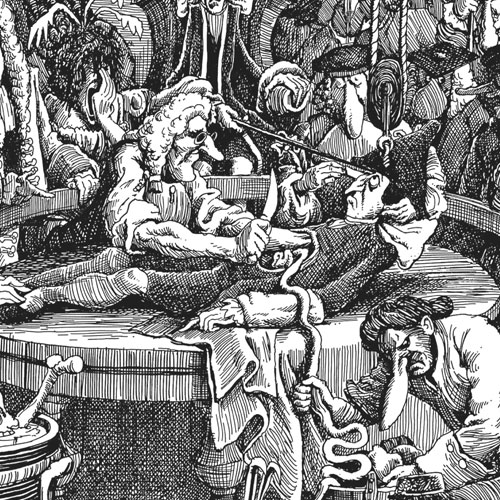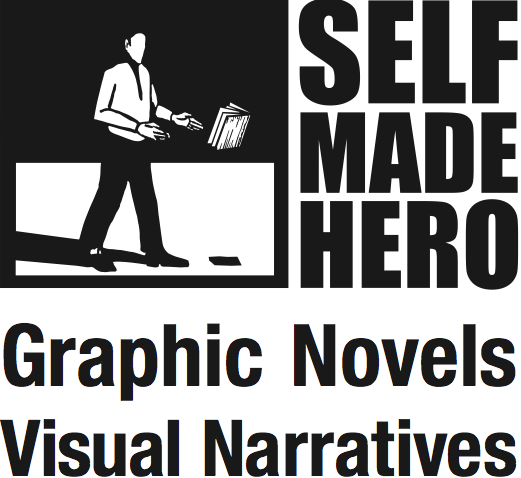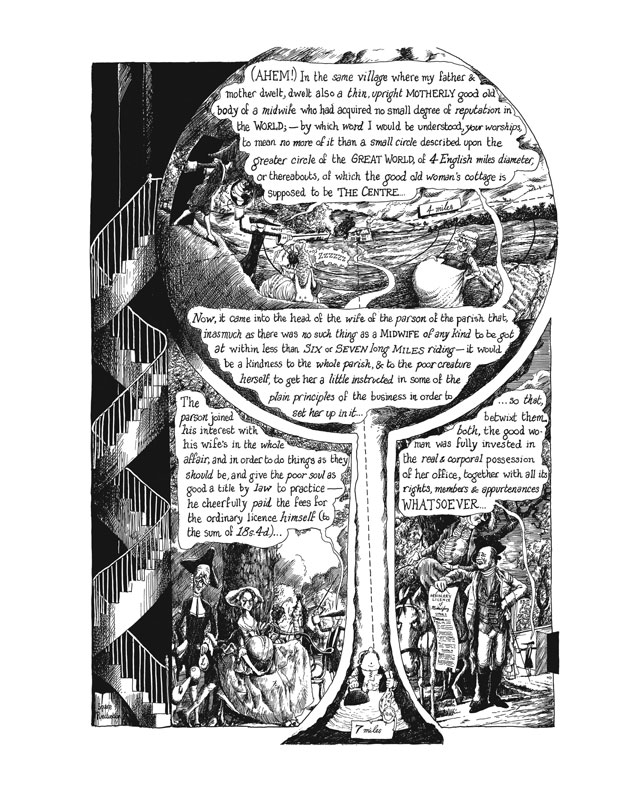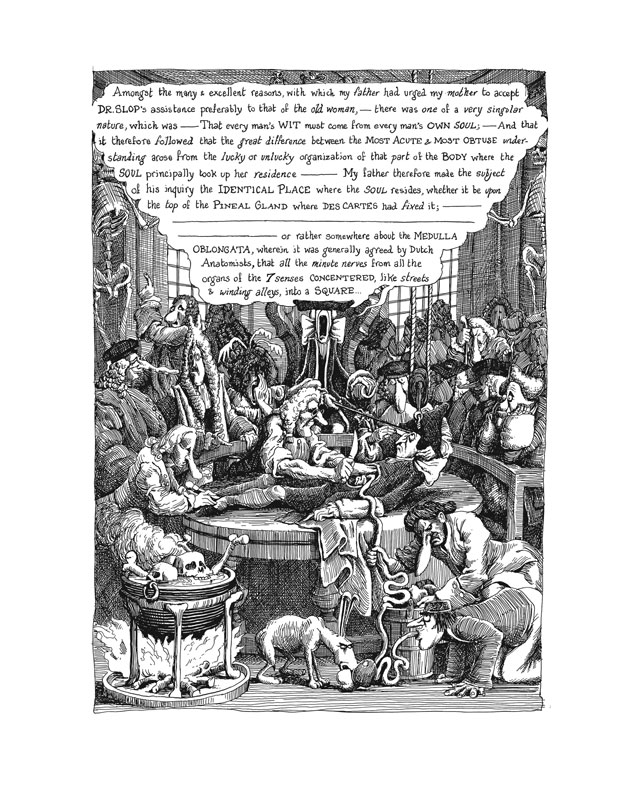The Life and Opinions of Tristram Shandy, Gentleman
By Martin Rowson
Hardback, 160 pp, £20.00
The Life and Opinions of Tristram Shandy, which first began to appear 250 years ago, has outlived all its critics – even its greatest: "Nothing odd will do long," declared Dr. Johnson in 1776, "Tristram Shandy did not last." (He felt the same about America.)
Laurence Sterne's bizarrely profuse labyrinth of digression found a kindred spirit in the artist Martin Rowson, whose classic 1996 masterpiece of graphic adaptation and textual deconstruction is here republished with a specially commissioned new cover from the author.
Dazzlingly faithful to the nine volumes of this first-ever 'anti-novel' (1759-67), Rowson has supplied the closest we will ever have to a tenth – not least for fulfilling Sterne's original hope: "That every time a man smiles – but much more so when he laughs – it adds something to this Fragment of Life."
Laurence Sterne's bizarrely profuse labyrinth of digression found a kindred spirit in the artist Martin Rowson, whose classic 1996 masterpiece of graphic adaptation and textual deconstruction is here republished with a specially commissioned new cover from the author.
Dazzlingly faithful to the nine volumes of this first-ever 'anti-novel' (1759-67), Rowson has supplied the closest we will ever have to a tenth – not least for fulfilling Sterne's original hope: "That every time a man smiles – but much more so when he laughs – it adds something to this Fragment of Life."
| Look inside | Watch the trailer
Martin Rowson
Martin Rowson is an award-winning cartoonist whose work has appeared regularly in The Guardian, the Daily Mirror, the Independent on Sunday, The Times, The Spectator, the Morning Star, Tribune, New Humanist and many other publications. His first novel, Snatches, was published by Jonathan Cape, as was his memoir Stuff, which was longlisted for the Samuel Johnson Prize. Other books include an anti-Dawkins, anti-Hitchens, anti-God rant, The Dog Allusion, and Fuck: The Human Odyssey, a history of the world in 67 beautiful (if foulmouthed) images. He is also a vice-president of the Zoological Society of London, the chairman of the British Cartoonists’ Association, an honorary associate of The National Secular Society and was once Ken Livingstone’s Cartoonist Laureate for London (in return for one pint of London Pride bitter per annum – now eight years in arrears). He lives in south-east London with his wife and (occasionally) their two children.

Reviews
"As critical commentary and scholarly play, this rude and splendid comic book will delight true Shandeans."
— Kirkus
"The hyperactive structure and comic tone of Sterne's novel lends itself to the graphic form and Rowson successfully adds his own jokes."
— The Independent





